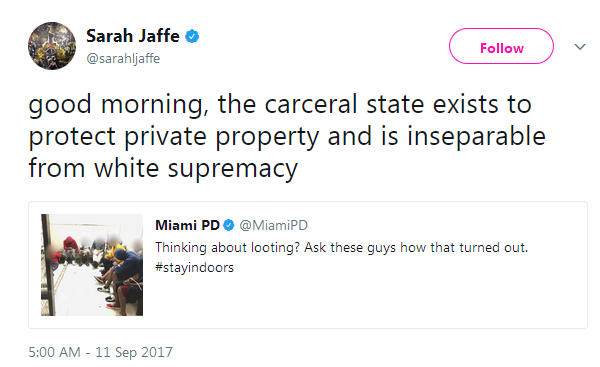And of communications, air conditioning in hot and humid environs (and of heating in cold environs), food and water distribution, fuel supplies, and so on.
Block by block and city by city, utilities face one of the largest power restoration challenges in US history as they bring back electricity to more than 15 million people affected by Hurricane Irma.
Almost 60,000 utility workers from the US and Canada are descending on Florida and other states hard hit by the storm, with more line crews and contractors expected soon….
The Wall Street Journal article from which the above quote was taken was strictly about the subject of that quote. However, there’s a much larger lesson, of much broader national security—even survival—implication, that Irma (and Harvey) would teach, were we willing to listen. The lesson needs to be learned widely, too, from individual citizens to government at all levels.
That lesson is the outcome of an EMP strike or strikes, which would drop our power grid, producing all of those follow-on failures even more thoroughly and over the entire nation. Such a strike is the sort of thing Russia actively tested when it was the core of the USSR, a capability possessed by the People’s Republic of China, and something northern Korea has been threatening us with since they successfully tested an ICBM. We got a taste of this from the Northeast Blackout of 1965, and that wasn’t even from an EMP, just an “ordinary” failure that cascaded. These hurricanes should finally prompt us to take action.
Some estimates, possibly apocryphal, but maybe not, have 90% of the American population dying in the immediate and near-term aftermath of a suitably timed EMP attack. The collateral damage would hit Canada and Mexico, too, limiting their ability to help us as they would need to see to their own survival first—as Mexico has had to do with its withdrawal of an offer of aid to Texas in the face of its own back-to-back devastating earthquake off its West Coast and hurricane coming ashore on its East Coast.
The necessary lessons involve individual preparation: non-perishable food and water supplies, alternative power sources or thought-out plans for doing without power (Florida Power and Light and Duke Energy are estimating nearly a week to restore power to “most” customers in one area and 10 days or more to customers in another area), neighborhood plans for security and first aid patrol until legitimate authority can arrive (days or weeks later in the case of an EMP attack, at least days later as the hurricanes are demonstrating). At the corporate level, the lessons include hardening facilities against EMP attack (a stretch, with Equifax demonstrating that corporations too often can’t be bothered with hardening against hacks) and provisioning alternate power sources. Government lessons begin with restoring security and medical services promptly; restoring power/facilitating utilities’ efforts to restore power; and food, water, and fuel distribution. At the national level, this includes hardening our power grid against EMP attack and ensuring continuity of communications with the population and with our defense establishment.
And that’s just for starters.


